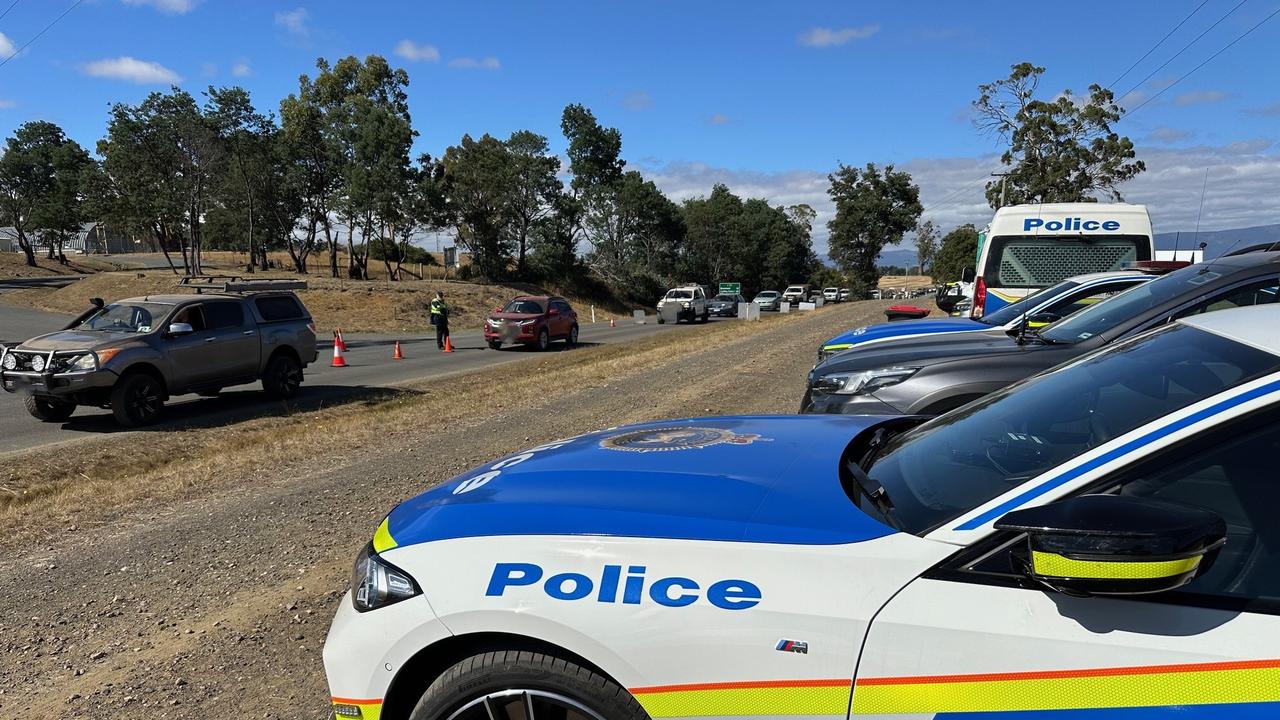TasWeekend: Island lies in a world of its own
NATURALLY beautiful Norfolk offers another island experience for Tasmanians to try.

Tasmania
Don't miss out on the headlines from Tasmania. Followed categories will be added to My News.
WHEN darkness falls at Norfolk Island, it descends like a black velvet cloak. There are no streetlights, no glittering high-rise towers, just the pinpoint twinkle of distant galaxies and the all-embracing stillness of the night.
Here, 1700 people live as if on a different planet. Australia is 1400km to the west but it might as easily be 14,000km. Norfolk is a speck in the vastness of the ocean possessed of a wild, rugged nature softened by gently rolling pastures and quiet country lanes that thread their way through arches of towering pines.
It is steeped in colonial history, having first been settled by the British as a convict colony in 1788 and then abandoned. It was resettled as a penal colony in 1824 and by 1840 there were 1872 convicts on the island.
“I could wish it to be understood that the felon who is sent there is forever excluded from all hope of return,” wrote Sir Thomas Brisbane, the governor of New South Wales.

Many Norfolk Islanders relocated or were transported to Van Diemen’s Land, which administered the island from 1844 to 1856, when the descendants of the Bounty mutineers arrived. They had been living at Pitcairn Island, which had become too crowded, and it is the descendants of those Pitcairners who live on Norfolk today.
The first thing you do on arrival is get the keys to a rental car, which is essential for exploring and the only form of transport.
The second, if you fancy a pre-dinner glass of wine in your room, is to visit the town’s only bottle shop. It closes at noon on Saturday and, like many businesses in Burnt Pine – “town” to islanders – doesn’t reopen until Monday morning. Extended-hours trading? Not on Norfolk.
You will be drawn first to Kingston on the shores of Slaughter Bay, where the remains of the convict buildings are to be found. Even on a bright, clear day with the surf breaking gently on the reef, there’s a palpable sense of foreboding.

Violent death was no stranger to Norfolk and a stroll through the nearby cemetery reveals the fate of the convicts and the soldiers sent to guard them. Thomas Cook, a private in the King’s Own Regiment, was one, his headstone recording that on January 17, 1838, he was accidentally shot by another soldier while pursuing convicts who were trying to escape.
What a long way to come, I thought, to be felled by friendly fire.
Walk on further and you will come across a small, simple gravestone marking the last resting place of one of the island’s more acclaimed former residents. It reads: “Dr Colleen McCullough Robinson. Born 1-06-1937. Died 29-1-2015. Writer.”
The island is a lattice work of sealed roads heading to all points of the compass and ending, almost invariably, on cliff tops giving breathtaking views of a jagged, rock-strewn coastline and towering stands of the famous Norfolk pines to the accompanying soundtrack of breaking surf.

Norfolk Island forms the geographical boundary between the Coral Sea to the north and the Tasman Sea to the south. In winter, the huge swells created by storms in the vastness of the Southern Ocean are unimpeded by any land mass until they meet the 70m cliffs of Headstone Reserve.
Head to the reserve – or Anson Bay Reserve, Selwyn Reserve, Rocky Point or Point Ross Reserve – and chances are you will find yourself alone with the elements.
Isolated as it may be, things are changing on Norfolk. Once self-governing, it became part of New South Wales on July 1, which meant islanders could access Federal Government benefits such as Medicare but would also, for the first time in their history, pay income tax.
Norfolk’s fierce independence extends to the table, with very little food imported, its rich volcanic soil guaranteeing a cornucopia of fresh seasonal produce. Try dinner at Dino’s and lunch at the Hilli Restaurant.
There was a time when to be allowed to settle or own property on Norfolk you had to have a skill the community needed. No more. Anyone can now own property there and the locals grumble that mainlanders are buying properties to use as holiday homes and pushing up real estate prices.
Income tax and rising property prices – welcome to the world.
The writer was a guest of Norfolk Island Tourism
Originally published as TasWeekend: Island lies in a world of its own



